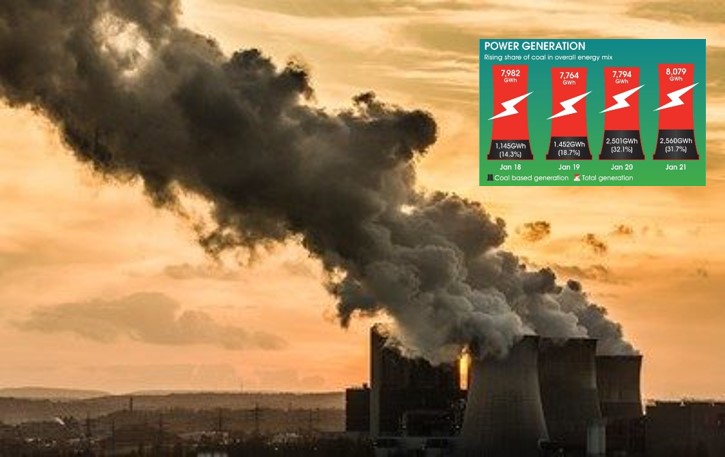It was on December 12, 2020 when the Prime Minister of Pakistan Imran Khan announced a moratorium on coal power and pledged to shift to greener energy production by 2030 at the Climate Ambition Summit. His statement received global applause but unfortunately nothing has so far been done at home in this regard. However, last week when Chinese President Xi Jinping said at the UN General Assembly that China would halt construction of coal power plants abroad and help developing countries build green energy production, it offers Pakistan a golden opportunity to phase out coal-fired power stations and fulfill pledge.
China & Coal Power
China is the biggest financer for coal power plants but President Xi’s announcement would have a far-reaching impact on coal power expansion plans globally. It is one of the most significant developments on the climate front this year, as it may well mark the end of international public financing for coal plants. As that “could affect 44 coal plants earmarked for Chinese state financing of $50 billion cost in total, but has the potential to reduce future carbon dioxide emissions by 200 million tons a year”, says Global Energy Monitor.
China has for some years been under tremendous pressure to up its game to help the world control climate change. The pressure increased after Japan and South Korea, the other two major financiers of overseas coal power projects, announced they would stop funding such projects earlier this year. Nonetheless, the moratorium on coal power is in line with global efforts aimed at reducing the sources of dirty energy in order to cut down carbon emissions and arrest global warming.
Implications for Pakistan
Now what could be the implications of this development for Pakistan? Pakistan being an under-developed nation is a bit heavily reliant on cheap or coal energy. The share of coal power has been recorded 32% of Pakistan’ total energy in January 2021. China is Pakistan’s largest investor and contractor of energy projects, most of which are coal-fired plants.
At present China is the Pakistan’s biggest investor and contractor of energy projects, most of which are coal-burning power plants. The CPEC includes 17 priority energy projects overall 11.1 GW in capacity and $ 18.62 billion in investments. Among them 75% (8.22GW) of this capacity is coal fired in nature, backed by roughly $ 8.7 billion of insured debt from major Chinese banks.
In the year 2019-2020 Pakistan recorded 19% of the power generation coming from just four coal-fired CPEC power plants. The 4.62 GW of CPEC funded coal-fired generation includes the 1,320 MW Huaneng Shandong Ruyi-Sahiwal Coal Power Plant, the 1,320 MW Port Qasim Coal Fired Power Plant, the 1,320 MW HubCo Coal fired power plant and the 660 MW Engro Thar Coal Power Plant.
The emerging global situation and China’s exit from coal financing would defiantly have significant implications on Pakistan energy sector. However, the immediate repercussions are likely to affect under-construction projects totalling 4.1GW in Gwadar, Thar, Jamshoro and Arifwala involving Chinese and local investment of over $5bn.
Impacts of Coal Energy
Pakistan’s National Commission for Human Rights commissioned a report couple of years ago, titled: Thar Coal Project and Local Community, Documenting Views and Experiences of Stakeholders revealed horrible impacts of coal on human health and environment. The report specifically revealed horrifying impacts of coal mining, from water contamination, dust pollution, destruction of vegetation and loss of wildlife habitat, to the violation of land acquisition and development laws in Pakistan.
However, the recent China’ moratorium on coal-power project financing really offers a wide open window for Pakistan to start implementing the promised phase-out, promised almost a year ago. Pakistan can now start renegotiate with China to replace coal power deals with green energy projects. That would be, in a way, supporting China in her exit from global coal financing and help developing countries build green energy production.
By
Editorial, Infocus


